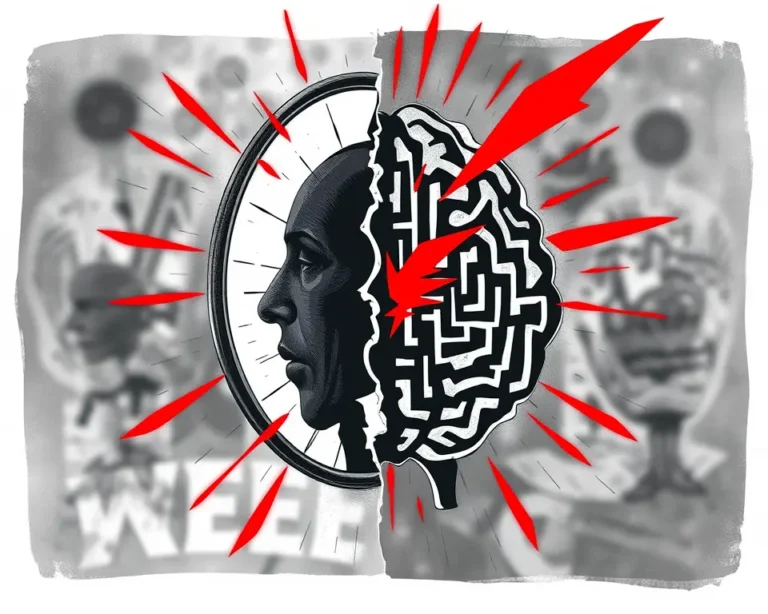Jasmine Crockett, a U.S. Representative from Texas, has recently voiced strong concerns regarding the lack of scrutiny surrounding Donald Trump’s mental fitness to serve as president. Her remarks have ignited discussions about the standards to which political figures are held, particularly in the context of high-stakes policy decisions and the overall stability of the nation. As the debate intensifies, it’s crucial to examine the context of Crockett’s statements, Trump’s history with cognitive tests, and the broader implications for American politics.
Crockett’s Concerns: A Second Term ‘Abusive Relationship’?
In an appearance on MSNBC on April 10, 2025, Crockett didn’t hold back, stating it was “beyond wild” that people weren’t questioning Trump’s mental fitness, especially considering his recent tariff proposals that could destabilize U.S. trade relationships. She drew a stark comparison, likening the potential of a second Trump term to being in an “abusive relationship,” citing his administration’s “unprecedented emergency policymaking” on issues ranging from immigration to the economy.
Crockett contrasted the criticisms leveled against President Joe Biden, who was often labeled “Sleepy Joe,” with the seeming lack of similar concerns about Trump. She argued that even if Biden was perceived as less energetic, his policies didn’t trigger the same level of anxiety about economic stability or international relations. “At least you could sleep at night because you didn’t have to worry about your 401(k) disappearing overnight,” she said, highlighting anxieties about Trump’s potential impact on the economy. She also touched on concerns about “allegations of fake invasions” and the rising costs of essential goods under a Trump administration.
Echoes of Doubt: Insanity or Ideology?
Crockett isn’t alone in raising questions about Trump’s mental state. Last month, a CNBC reporter, Steve Liesman, risked professional repercussions to describe Trump’s tariff plans as “insane.” This sentiment was echoed by hedge fund managers who reportedly wondered if the White House was acting irrationally, driven by ideology, or something more concerning. Tom Lee, head of research at FSInsights, noted the anxieties among macro fund managers as Trump’s tariff plans triggered stock market volatility.
Trump’s Defense: Acing the Cognitive Test
In response to ongoing scrutiny, Trump has frequently asserted his mental sharpness, often boasting about his performance on cognitive tests. On April 11, 2025, aboard Air Force One, Trump told reporters he had “aced” a cognitive test during his annual physical at Walter Reed National Military Medical Center and that the results would be released soon. “I don’t know what to tell you other than I got every answer right,” he stated, contrasting himself with Biden, who he claimed “refused to take it.”
This isn’t the first time Trump has touted his cognitive abilities. In 2020, he described a cognitive test he supposedly took, where he had to recall a string of words: “Person, woman, man, camera, TV.” He claimed the doctors were amazed by his ability to remember the sequence.
However, these claims have often been met with skepticism. While Trump insists the tests are challenging, critics argue they are basic assessments designed to detect cognitive impairment, not necessarily to demonstrate superior intelligence.
A History of Health Secrecy
Adding to the controversy is Trump’s history of limited transparency regarding his health. While presidents typically release detailed summaries of their physical exams, Trump has often provided minimal information, relying instead on statements from his physicians that offer few specifics.
For example, in November 2023, Dr. Bruce A. Aronwald released a letter stating Trump was in “excellent” physical and mental health, but the letter lacked essential details like weight, blood pressure, and cholesterol levels. This lack of transparency contrasts with the detailed health information released by previous presidents, including Joe Biden.
Cognitive Tests: What Do They Really Measure?
The Montreal Cognitive Assessment (MoCA) is one test that has been mentioned in connection with Trump. It is a widely used screening tool designed to detect mild cognitive impairment. The MoCA assesses various cognitive domains, including:
Visuospatial/Executive: Tasks include copying a cube, drawing a clock, and connecting numbers and letters in an alternating sequence.
Naming: The individual is asked to name pictures of animals.
Memory: The individual is read a list of words, asked to recall them immediately, and then again after a delay.
Attention: Tasks include sustained attention, serial subtraction, and digit span forward and backward.
Language: The individual is asked to repeat sentences and generate words in a category.
Abstraction: The individual is asked to identify the similarity between two concepts.
Orientation: The individual is asked to provide the date, month, year, place, and city.
A perfect score on the MoCA doesn’t necessarily indicate superior intelligence or fitness for high office. Instead, it suggests the absence of significant cognitive decline.
The Broader Implications
The debate over Trump’s mental fitness raises several critical questions about the standards we apply to political leaders:
- Transparency: How much detail should be required in the disclosure of a candidate’s health information?
- Cognitive Testing: Should cognitive assessments be a routine part of evaluating candidates for high office?
- Voter Considerations: How much weight should voters give to a candidate’s age, health, and perceived mental acuity?
Ultimately, these are questions that voters must consider as they evaluate candidates and make decisions about who should lead the country. The concerns raised by Jasmine Crockett, along with the responses and counter-narratives, contribute to a vital conversation about the qualities and capabilities we expect from our elected officials.
The controversy also comes amid other recent issues surrounding Crockett, including a censure resolution filed against her for comments made about Texas Governor Greg Abbott and a FEC complaint over ActBlue donations. These incidents add layers of complexity to the discussion, highlighting the polarized environment in which political discourse takes place.







